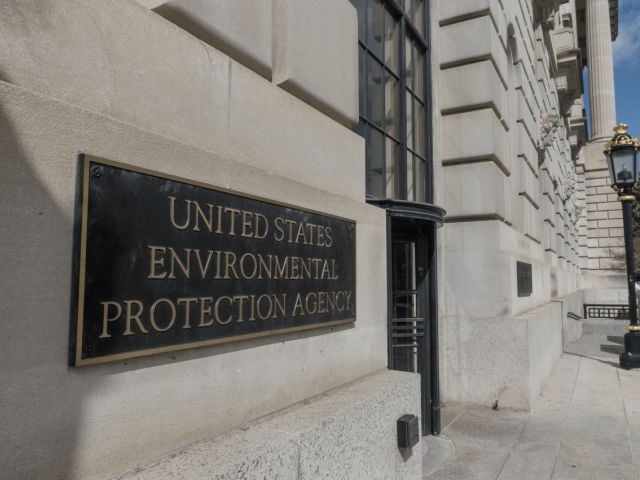
By Craig Cox and Sheila Karpf The corn lobby has persistently sold misguided subsidies and mandates for corn ethanol as a bridge to the "next generation" of so-called "advanced" biofuels. The conventional wisdom was that infrastructure built to support inefficient and environmentally damaging corn ethanol would eventually benefit the nascent advanced biofuels industry. But last week, the corn lobby’s Corn Commentary blog officially and rather smugly blew up the bridge by comparing cellulosic ethanol to imaginary pet unicorns. It said:
The updated version of the Renewable Fuel Standard mandates usage of 250 million gallons of cellulosic ethanol this year and 500 million gallons by 2012. As of June 2011, zero gallons of qualifying cellulosic ethanol were produced. The target is, under current conditions, an impossible demand. It is a demand based on promises. Much as parents may tell stories about unicorns and fairies, some players in the ethanol and environmental industries pushed a product which they were not prepared to deliver. In both scenarios, optimism created a beautiful vision of a world that does not exist. Once the story was sold, neither party could meet the unrealistic expectation that they had created.
The impetus for the corn lobby to turn their backs on advanced biofuels was President Obama’s announcement the same day that the Departments of Agriculture, Energy and Navy would spend up to $510 million over the next three years to help develop advanced “drop-in” aviation and marine biofuels, defined as biofuels that, unlike corn ethanol, act like petroleum and do not require engine modifications.
By building a national biofuels industry, we are creating construction jobs, refinery jobs and economic opportunity in rural communities throughout the country. As importantly, every gallon of biofuel consumed near where it is produced cuts transportation costs and, for the military, improves energy security. Agriculture Secretary Tom Vilsack
The corn lobby’s sudden doubts about the bridge to advanced biofuels, now that the administration actually proposes to cross it, were echoed by Rep. Collin Peterson (D-Minn.), ranking Democrat on the House agriculture committee and one of the more reliable champions for the corn lobby and the ethanol industry. Peterson told the Duluth News Tribune that the administration’s plan to develop advanced biofuels for the military “is just another competition for us in ethanol that we don’t need really.” Peterson continued:
Technologically, the new fuel can be produced, but it would take expensive on-going government support to produce the fuel. There is no Navy in Minnesota. So there is not going to be any market that is close enough to us to do any good for us.
Not doing “any good for us”? What about national security and energy independence – the corn and ethanol lobby’s favorite talking points? But this isn’t the first time Peterson has been willing to hold the national interest hostage to the corn ethanol industry. In May 2009 he threatened to “bring the climate bill down” because the Environmental Protection Agency’s science-based analysis found that corn ethanol doesn’t reduce greenhouse-gas emissions as much as the industry claims. Not long ago, Peterson fervently supported advanced biofuels. For instance, during a House agriculture committee hearing on renewable energy in October 2009, he declared:
The next generation of renewable fuels will be built on the success of corn-based ethanol and biodiesel, which means that we must continue to support the work of today's biofuels producers in order to give new technologies time for development and implementation… The promise of next generation biofuels is exciting, and it is my intention to do everything I can to see it succeed…We can't expect the next generation of biofuels to materialize if we don't allow the industry to succeed in the first place…
Indeed, the always-elusive specter of next-generation biofuels has been the pretense by which the corn and ethanol lobby sought generous federal mandates and incentives for ethanol production. In a release applauding the passage of 2007 legislation establishing the Renewable Fuel Standard, Jeff Broin, chief executive officer of leading ethanol producer POET and benefactor for ethanol lobby group Growth Energy, said the bill would “hasten the development of cellulosic ethanol." Since 2007 a chorus of voices from corn country has sung the praises of the corn ethanol bridge to advanced biofuels:
First generation biofuels are the bridge to second generation biofuels. Kristy Moore, Technical Director at the Renewable Fuels Association Syngenta’s expertise and technology can help corn-based ethanol survive and thrive while providing a bridge to the next generation of renewable fuels. Miloud Araba, Ph.D., Director of Bioprocessing at Syngenta It is imperative that the existing grain-based ethanol industry and the accompanying infrastructure that has been built around that industry continue to prosper and remain viable in order to serve as a bridge for the next generation of biofuels. Ron Litterer, former Chairman of the National Corn Growers Association testifying before the House Committee on Small Business
Even people who should, and likely do know better have felt compelled to sing along.
Corn-based ethanol is a bridge, an extraordinarily important one, to the next generation of ethanol and biofuels. Lisa Jackson, Administrator of the Environmental Protection Agency
But the administration’s plan to spend a miserly $510 million on advance biofuels -- compared to the generous $23 billion in tax credits since 2005 that go to support the corn ethanol industry – was enough of a jolt to loosen the corn lobby's tongue. Maybe the imminent demise of its favorite taxpayer-funded subsidy has rattled the corn lobby’s once politically impenetrable cage. In any event the corn lobby now concedes what some of us have known all along. Corn ethanol is only a bridge to more and more corn. A POET-sponsored website quotes Rick Tolman, chief executive officer of the National Corn Growers Association, as saying:
Unless we have growing ethanol production, you can’t use all the corn that will be produced by farmers in the future and you’ll have a depressing influence on price. We need a growing demand base to keep the incentives in place for farmers to grow more corn. Livestock producers are still our most important customers and exports are important, too, but the only growth piece we have is ethanol to keep up with that increased productivity.
In that vein, Tom Buis, Growth Energy’s CEO, responded to the administration’s plan on advanced biofuels by insisting the federal government must continue to “do everything it can for first generation ethanol… Greater access to the fuels market can be achieved through the full implementation of E15 and an investment in Flex Fuel pumps and Flex Fuel vehicles.” But Buis and the lobby shop he helms have long sought to ensure corn ethanol remains the only commercial biofuels options for American consumers. According to Farm Policy, the respected online agriculture news site, Growth Energy is even trying to tinker with the renewable fuel standard to redefine corn ethanol as an advanced biofuel. The rush to plant as much corn as possible to take advantage of corn ethanol has already exacted a heavy environmental toll on Corn Belt states like Iowa in the form of soil erosion and water pollution. Adding billions of gallons of mandated production via an RFS redefinition would be pouring ethanol on the fire. Let’s face it. From the outset, corn ethanol has been all about corn, corn and more corn. Not about energy independence, or clean air or global warming. Just another tired, old crop subsidy wrapped in the flag at the expense of taxpayers, soil and water and any serious momentum toward truly sustainable biofuels. Last April, we recommended that if the U.S. pursues advanced biofuels, it should give priority to dedicated research on those that significantly reduce greenhouse gases, conserve soil and water, do not compete with or displace food crops and are environmentally sustainable in both the short- and long-term. Finally, the corn and ethanol lobbyists and their congressional friends have conceded that their ultimate motives were purely market driven. American taxpayers, who have financed the corn ethanol boondoggle, are left with yet another liquid fuel that does little to solve our real energy problems.


